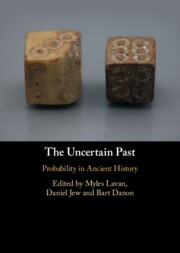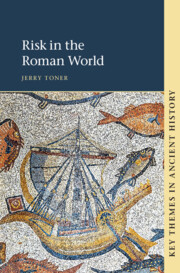The Uncertain Past
Historians constantly wrestle with uncertainty, never more so than when attempting quantification, yet the field has given little attention to the nature of uncertainty and strategies for managing it. This volume proposes a powerful new approach to uncertainty in ancient history, drawing on techniques widely used in the social and natural sciences. It shows how probability-based techniques used to manage uncertainty about the future or the present can be applied to uncertainty about the past. A substantial introduction explains the use of probability to represent uncertainty. The chapters that follow showcase how the technique can offer leverage on a wide range of problems in ancient history, from the incidence of expropriation in the Classical Greek world to the money supply of the Roman empire.
- Introduces a new framework for managing uncertainty in ancient history
- Provides an accessible account, aimed at historians, of statistical techniques that are widely used in the social and natural sciences
- Includes practical illustrations of how new techniques can be used to illuminate historical problems
Reviews & endorsements
'… the volume as a whole is to be commended, and I recommend it both to historians of the ancient Mediterranean … as well as to economic and social historians from other areas … The editors make a compelling and clear argument (directly and through their contributors) that probabilistic methods deserve further use, and are more accessible than one may initially think: I can't help but find myself agreeing.' Thomas Laver
Product details
December 2022Hardback
9781009100656
348 pages
252 × 176 × 20 mm
0.73kg
60 b/w illus. 10 maps 80 tables
Available
Table of Contents
- 1. Probabilistic modelling in ancient history Daniel Jew and Myles Lavan
- Part I. Uncertainty:
- 2. Assessing the scale of property confiscation in the ancient Greek world Emily Mackil
- 3. Senators and senatorial wealth at Pompeii: reconstructing the local wealth distribution Bart Danon
- 4. The Roman coinage under the Antonines revisited: an economy of silver, not gold Gilles Bransbourg
- Part II. Variability and Missing Data:
- 5. Children and their impact on family finances in Roman Egypt Paul V. Kelly
- 6. The financial sustainability of grain funds: a model-based approach using Monte Carlo simulation N. Solonakis, A. Toure and M. Elhouderi
- 7. New approaches to the urban population and urbanization rate of the Roman Empire, AD 1 to 200 J. W. Hanson
- 8. Afterword Bart Danon, Daniel Jew and Myles Lavan.



